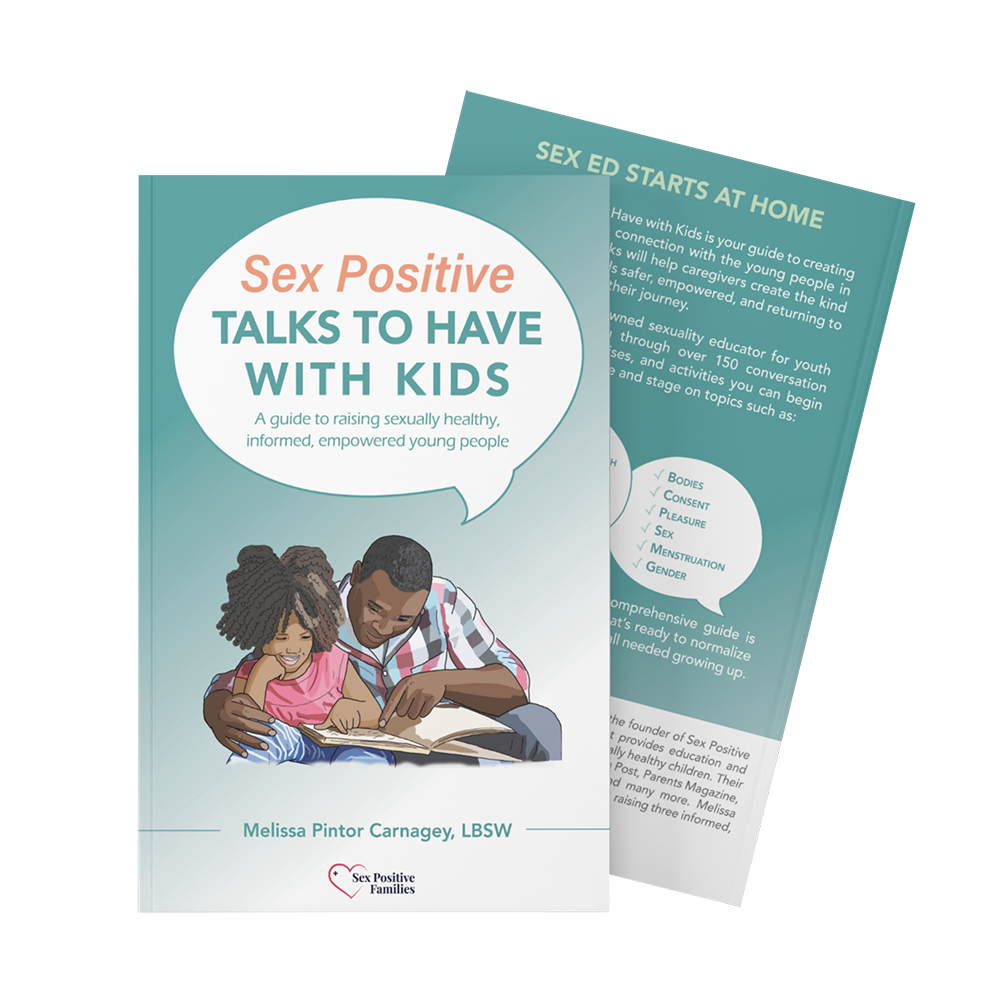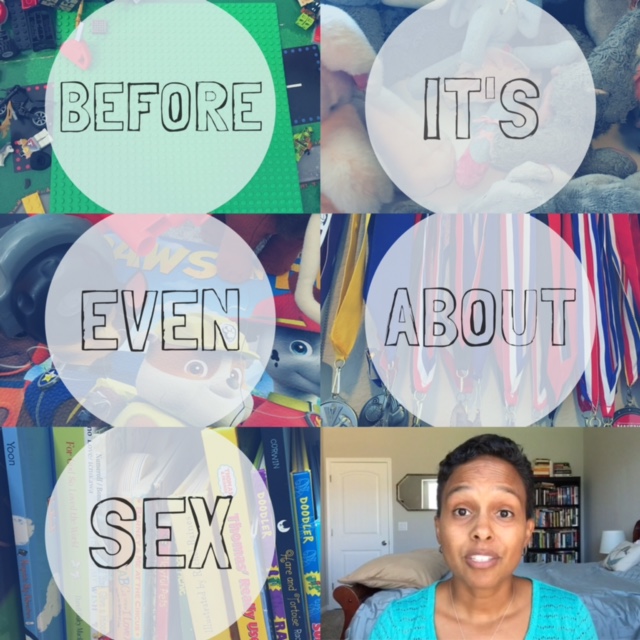-By: Melissa Pintor Carnagey, LBSW, CLC-
“Mommy, why don’t people have tails?” “How do car horns honk?” “What do worms taste like?” Seriously? I surely can’t be the only parent that gets questions like this, as if I’m the Encyclopedia Britannica. These are犀利士
every day musings in my life as a parent of a very curious and spirited 7-year-old son. He wakes up early everyday with big questions, a bright smile and lots of love to share. His days are lived out loud and actively. When his head finally hits the pillow, you can see his wheels still squeakily turning, gearing up for those big dreams.
My decision to parent him in a sex-positive manner has felt so critical because inside him lives a spirit that loves to be seen, to connect with others, and to explore. I want him to have the opportunity to build healthy relationships, explore his curiosities without fear or shame, and to take just enough risks to satisfy his interests safely.
Before I even get into the ins and outs of sexual health with him, these early years have been more focused on building the foundations of self-worth, respect, body image, and safety. What does early sex-positive parenting look like with little ones? Here are five strategies that have worked in our family:
- Let them lead—Our little ones maneuver their days through our grown-up world following our expectations, rules and demands. This can support good following, but putting them in positions of leadership early is where the real magic happens. Keeping phrases like “Show me” and “Teach me” in your toolbox can set their creativity and confidence aglow. This requires you loosening expectations- things don’t have to be done ‘right’ or ‘perfectly’ during this time. It’s the act of giving them the space to create, assign, share, and teach that gets them comfortable and confident within leadership roles. Practice saying yes to their ideas and you will find them sharing more of them with you, unfiltered and unrestricted, which will establish open communication between you both that will pay off along the journey as life gets more complicated. Letting them lead is a win that allows for: confidence, critical thinking, and creativity.
- Model failure—Messing up, making mistakes, and epic fails are not fun but they are a necessary part of life. Through failure we learn resiliency, opportunity, and forgiveness of self and others. If you want your child to grow up to be a brave, fearless, emotionally intelligent being then you’ve got to show them what falling down and getting back up looks like. From spilling a glass of juice to breaking your sunglasses to being told you’ve hurt someone’s feelings, all of these are teachable moments. And when bigger events like divorce, job loss, vehicle collisions or financial strain happen, these are also times when a sense of failure can be triggered and it’s important to be mindful of the little eyes that are watching as you navigate your way through. Talk honestly, show compassion, and forgive openly. Modeling failure is a win for fostering: resiliency, compassion, and forgiveness.
- Let them say no—The sound of a toddler using the word ‘no’ for the first time is often met with adoring chuckles. When the word becomes recycled repetitively or spoken aggressively, not in the context of safety, then it can sound less cute but I encourage my son to use the word no when he needs to and especially when it comes to his body. When greeting grandma or that work colleague, allow your child to decide how they wish to respectfully greet them, without forcing them to show certain forms of physical affection. Maybe a wave, handshake or a high five versus forcing a hug or kiss could feel like a more comfortable option to them. I know many of us did not grow up with this kind of autonomy, but I’m telling you, it is important for their safety and self-awareness. Let your child know that their body is theirs and no one (I mean NO ONE) can touch it without their permission. Talk, of course, about the caveats of situations with medical providers or trusted loved ones within specific safety or caretaking contexts. Run through scenarios and role plays to help them understand how and when to say no. It’s a win for fostering: safety, boundaries, consent, assertiveness, body awareness, and confidence.
- Stay Curious—As parents, we answer A LOT of our children’s questions. Questions are how we all gain greater understanding. Getting creative at being curious and showing genuine interest in what captures your child’s attention is a great way to build the foundations of a strong relationship with them. In today’s world parents can feel busy and preoccupied; this can impact children. Our kids seek our approval and make note of our engagement. When we stay curious about their ideas, feelings, experiences and interests, it sends them the message that you care and they matter. Stay in the habit of saying, “Oh yeah? Tell me more about that” or “What do you think?” “How does this make you feel?” If you want to get more of a response, transform the “How was your day?” into “What was the funniest thing that happened today?” or “What is one thing you learned in school today that you can teach me?” Using open-ended questions like these instead of ones that yield a “yes” or “no” answer, will make your child think and it will open doors to their world, which will pay off on down the line especially in regards to sexual health talks. Asking questions is a win for fostering: self-worth, confidence, interpersonal communication skills, and a deeper parent/child connection.
- Listening actively—This sounds like People Skills 101, but seriously, we are raising autonomous human beings that desire and deserve to be heard and affirmed. When I can lend my attention to his thoughts, questions and interests (even if it’s the tenth time he’s yelled “Watch this!” or it’s another rambling imaginative story), I am telling him that he and his ideas matter. It’s a sign of love. The ‘actively’ part means your attention is on them- no devices, work tasks, or distractions- and your body language is attuned to them (i.e. you’re facing them, using eye contact and affirming nods). Try to set aside at least 15 minutes of your undivided attention to just them in each evening. Ask open-ended questions, get curious about their ideas and feelings, and just listen. It’s a sure-win for supporting: self-worth, a safe space, and open communication.
Practicing these skills early and often creates a healthy, supportive and open relationship with your child. I didn’t truly start grasping many of these until my daughter’s middle school years and as she recently transitioned off to college, I find myself so proud of the confident, self-aware, assertive, and resilient human being she has become. We talk openly about sex, her values, fears, and triumphs without shame or awkwardness. Though starting early is ideal, it’s never too late. I’m happy now to be applying these strategies early with my son so the foundation is established… before it is even about sex.
*CHECK OUT THE VIDEO SERIES WITH AN OVERVIEW OF EACH TIP BELOW*
Video 1: Let Them Lead
Video 2: Model Failure
Video 3: Let Them Say No
Video 4: Stay Curious
Video 5: Listen Actively

Sex Positive Talks to Have With Kids is the bestselling guide to creating an open, shame-free connection with the young people in your world.
It’s an inclusive, medically accurate, and comprehensive resource that walks you through over 150 conversation starters, reflection exercises, and activities you can begin implementing at every age and stage to normalize sexual health talks and become the trusted adult we all needed growing up.
